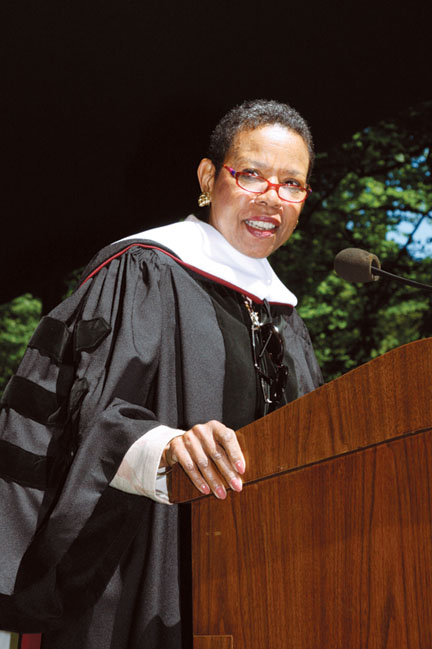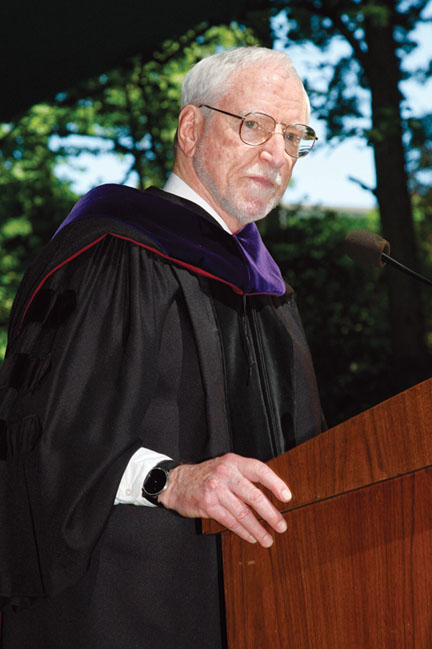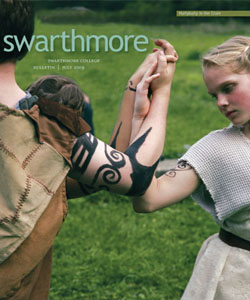Honorary Degrees for Campbell ’69 and Hormel ’55
Mary Schmidt Campbell ’69, (watch: speech) dean of the Tisch School of the Arts at New York University, spoke of her graduation from Swarthmore at a time of radical global, social, and cultural revision. She spoke of her anger and disappointment at what she saw at the time as a breakdown of the College’s effort to create an integrated campus. Despite a vow back then never to return to the College, she spoke of the powerful lessons she learned through her reconnection to Swarthmore.
The Swarthmore quality of mind is sturdy and dependable. I didn’t appreciate the value of the Swarthmore quality of mind until I went to work at the Studio Museum in Harlem 30 years ago. As fragile as the economy is today, 30 years ago, NYC was on the verge of bankruptcy. The Studio Museum was then located in a modest loft over a liquor store in central Harlem. Harlem was in ruins. The embryonic museum had no money and as executive director I had never run anything in my life. Nonetheless, a group of artists, curators, and business people believed we could build a major cultural center for artists and scholars who, at the time, were invisible in American culture and, in the process, transform the Harlem community. What sustained me, in large measure, was what I learned in the classroom at Swarthmore. Whether those classes had been in physics or political science, they all taught the Swarthmore quality of mind: comfort with massive amounts of new material and complexity; the capacity to probe deeply and persistently with purposeful focus; the insistence on excellence and integrity. I had never run anything, but Swarthmore had equipped me to learn quickly and learn deeply.
James Hormel ’55, (watch: speech) former ambassador to the Grand Duchy of Luxembourg and the first openly gay ambassador in U.S. history, spoke of his indebtedness to his grandfather, who, through courage and self-sacrifice coupled with hard work and resourcefulness, became the founder of the Hormel Foods Corporation. And he spoke of coming out as a gay man and thereby attaining the freedom to engage honestly with the world.
The strongest advice I can offer anyone is to come out—and I don’t mean from the closet, although for some of you perhaps it is what I mean. More broadly, I urge you to follow your dreams and desires, instead of following the crowd.
The process of coming out is like learning to walk. The first step may be tentative, but the next is inevitable, and soon one discovers the exhilaration of freedom. The next stage is learning what one can do with that freedom. In my case, it became the quest for equality. I began that journey by joining in the successful effort to defeat a ballot initiative intending to prevent lesbians and gay men from teaching in California’s public schools. The trip took me through many adventures up to 1992, when a member of the Clinton team suggested that I seek an appointment in the new administration. The rest, truly, is history; the modest and conventional boy from Minnesota became the first openly gay United States Ambassador.
Heraclitus is quoted as saying, “Change alone is unchanging.” Change is inevitable. How one responds to the forces of change is like a personal recipe for one’s life.
 Email This Page
Email This Page

